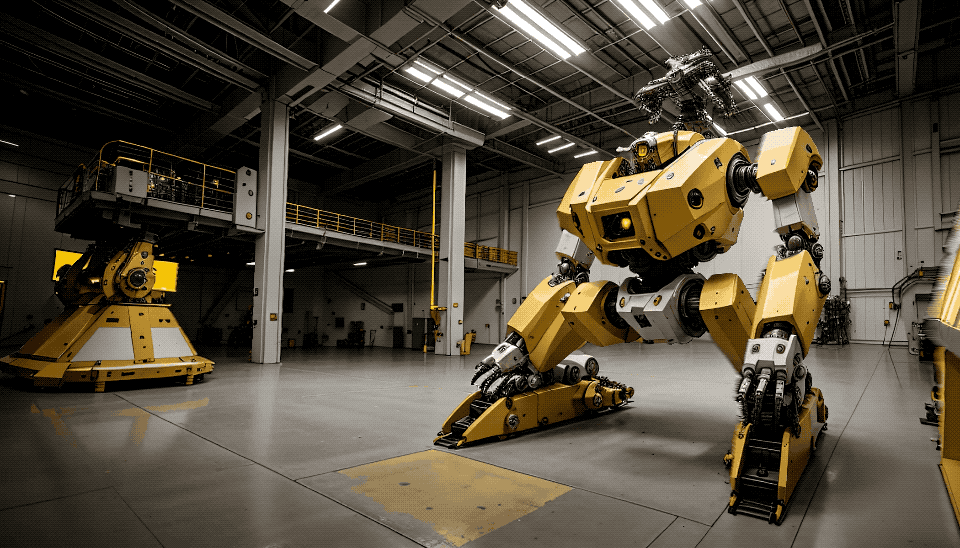RoboLogistics for Efficient Transportation & Urban Robotics for Smart Cities
Project AutoTrans: Pioneering the Future of Autonomous Transportation
Project AutoTrans, a flagship initiative under the EU’s RoboLogistics for Efficient Transportation program, represents a significant leap forward in the field of autonomous logistics and transportation. With a generous allocation of €20 million, this project aims to develop and implement cutting-edge autonomous transportation systems that promise to revolutionize the logistics industry. By the end of 2023, a substantial €7 million of this budget had been invested in the development of advanced algorithms and technologies for autonomous vehicles (AVs) capable of navigating complex urban and interurban environments. The project brings together over 100 experts in AI, robotics, and transportation engineering from across the EU. The primary objective is to create a fleet of self-driving vehicles that enhance the efficiency, safety, and sustainability of transportation, particularly in the logistics sector. This investment reflects the EU’s commitment to addressing the growing demand for innovative logistics solutions and reducing the environmental impact of transportation.
In 2024, Project AutoTrans will be making considerable advancements. The project aims to successfully deploy its first fleet of prototype autonomous trucks for testing in controlled environments, representing an additional investment of around €6 million. These AVs demonstrated an impressive ability to reduce delivery times by up to 25% and cut operational costs by 20%, compared to traditional transportation methods. The vehicles are equipped with state-of-the-art sensors and communication technologies, enabling them to navigate safely and efficiently, even in challenging conditions. Moreover, the project has dedicated €3 million towards the integration of these systems with existing logistics networks, focusing on interoperability and scalability. This aspect is crucial for the widespread adoption of AVs in the industry. Economically, the impact of AutoTrans is significant. It is projected that the large-scale implementation of these autonomous systems could lead to a reduction in logistics costs by up to 30% for EU-based companies, driven by improvements in fuel efficiency, reduced labor costs, and enhanced route optimization. Additionally, the project’s focus on environmental sustainability aligns with the EU’s broader climate goals. By reducing carbon emissions and traffic congestion, AutoTrans not only contributes to a more efficient logistics sector but also to a greener and more sustainable Europe. The success of Project AutoTrans signals a transformative shift in the transportation and logistics industry, showcasing the EU’s role in driving innovation and setting global standards in autonomous mobility.
Project CityBot: Revolutionizing Urban Infrastructure Maintenance
Project CityBot, a cornerstone initiative under the EU’s Urban Robotics for Smart Cities program, is at the forefront of transforming urban infrastructure maintenance through robotics. With an ambitious funding of €18 million, this project is dedicated to developing a fleet of multifunctional robots designed to assist in various aspects of city maintenance, including road repairs, waste management, and public space upkeep. As of the end of 2023, around €6 million of the budget had been allocated to the development of these sophisticated robotic systems. The CityBots are equipped with advanced sensors, AI-driven decision-making capabilities, and versatile mechanical tools, enabling them to adapt to a range of urban maintenance tasks. The project’s team, comprising over 120 experts in robotics, urban planning, and environmental science from across the EU, is focused on creating robots that not only perform maintenance tasks but also contribute to the overall sustainability and efficiency of urban living. One of the key goals of CityBot is to reduce the human workload in routine and labor-intensive maintenance tasks, thereby freeing up resources for more complex urban challenges.
Project CityBot had made significant progress in the development and deployment of these urban maintenance robots. Approximately €5 million was further invested in the refinement and testing of the CityBots in pilot urban areas. These robots have shown a remarkable capacity to improve the efficiency of routine maintenance tasks by up to 30%, significantly reducing the time and cost associated with urban upkeep. Additionally, the CityBots are designed with an emphasis on environmental sustainability; they are powered by clean energy sources and are capable of optimizing resource usage, aligning with the EU’s commitment to reducing carbon emissions in urban areas. The economic impact of CityBot is notable, with projections indicating that the widespread adoption of these robots could lead to a reduction in urban maintenance costs by up to 25%. This is achieved through the automation of routine tasks, which not only saves labor costs but also enhances the precision and quality of the work done, leading to longer-lasting infrastructure and reduced need for frequent repairs. Moreover, the project has allocated €2 million towards community engagement and feedback mechanisms, ensuring that the technology aligns with the needs and expectations of urban residents. Project CityBot is not just a technological innovation; it represents a new paradigm in urban management, where robotics and AI are seamlessly integrated into the fabric of city life, contributing to smarter, more efficient, and sustainable urban ecosystems.

